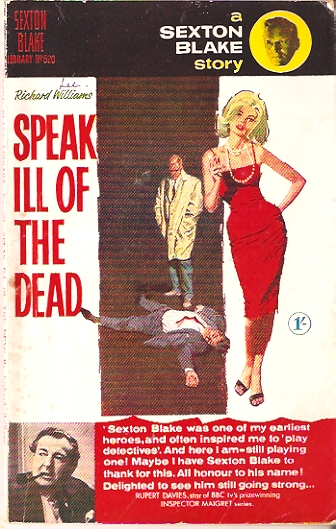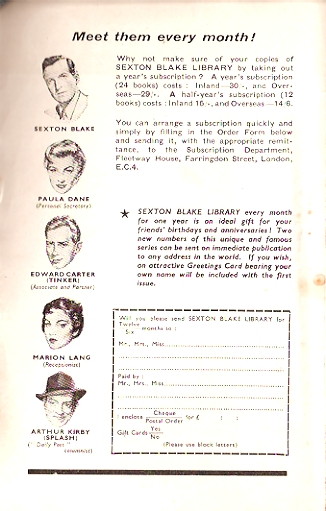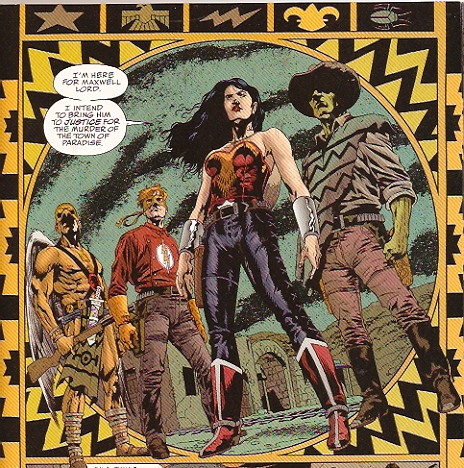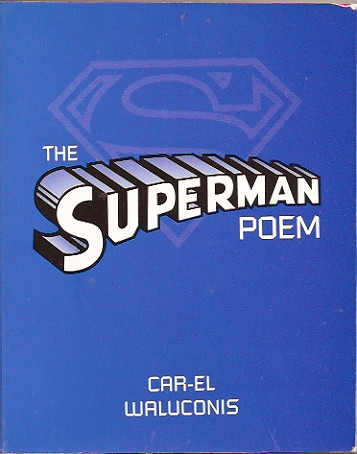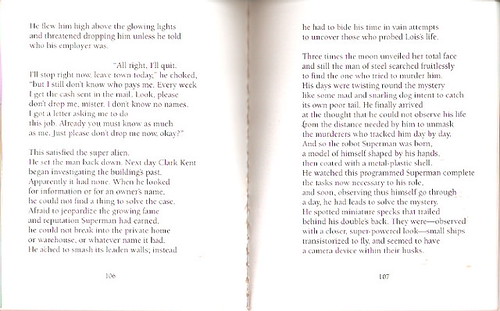 I know that I haven't blogged about comics for a while, but I swear that this Batman post was not designed just to take advantage of the upcoming Halloween holiday. I just happened to run across a couple of Bat-items to share.
I know that I haven't blogged about comics for a while, but I swear that this Batman post was not designed just to take advantage of the upcoming Halloween holiday. I just happened to run across a couple of Bat-items to share.I was reading an online WIRED article about old-timey Halloween costumes when I came across this photo:
 Click to embiggen and take a look at that fellow on the far left. I don't know what the rest of those folks are supposed to be, but doesn't he look just a bit like a road-show version of a certain caped crusader? Now take a look at the date of that photo: 1924. It's a truism by this point that Bob Kane and Bill Finger had lots of historical and contemporary models for their new comic book character in 1939, but a photo like this makes me wonder just how much a bat-man character was in the public consciousness already. The first real-life version of Batman, in the 1943 movie serial, has a cowl that looks remarkably similar to this one, particularly in the ears:
Click to embiggen and take a look at that fellow on the far left. I don't know what the rest of those folks are supposed to be, but doesn't he look just a bit like a road-show version of a certain caped crusader? Now take a look at the date of that photo: 1924. It's a truism by this point that Bob Kane and Bill Finger had lots of historical and contemporary models for their new comic book character in 1939, but a photo like this makes me wonder just how much a bat-man character was in the public consciousness already. The first real-life version of Batman, in the 1943 movie serial, has a cowl that looks remarkably similar to this one, particularly in the ears: Or maybe not - maybe that pre-depression dude is just a devil or something, and the ear thing is a coincidence. But this recent costume ad shows that the tradition of goofy bat-ears continues to this day:
Or maybe not - maybe that pre-depression dude is just a devil or something, and the ear thing is a coincidence. But this recent costume ad shows that the tradition of goofy bat-ears continues to this day:
In other bat-news, I finally got a chance to watch Batman: Gotham Knight, the recent direct-to-video sort-of anime version of a Batman movie. The draw for this film was supposed to be seeing the Batman story interpreted by six different directors in six separate but vaguely connected short episodes. It was entertaining and fun, but the central conceit just didn't work for me: I
 found that the six episodes weren't really different enough for the experiment to work. There was no sharp contrast between the interpretations; one Batman might have been a little heavier and another a little techier, but the art styles and character designs were all pretty similar, and Gotham City looked pretty much the same, in all the episodes. This feeling may have been exacerbated by the first episode's being an animated remake of the 1973 comic book story "The Batman Nobody Knows," in which Batman, seen by three youngsters, is perceived as a completely different character by each. Those imagined Batman images really were different from one nother; the "real" Batman in each of the six episodes, not so much.
found that the six episodes weren't really different enough for the experiment to work. There was no sharp contrast between the interpretations; one Batman might have been a little heavier and another a little techier, but the art styles and character designs were all pretty similar, and Gotham City looked pretty much the same, in all the episodes. This feeling may have been exacerbated by the first episode's being an animated remake of the 1973 comic book story "The Batman Nobody Knows," in which Batman, seen by three youngsters, is perceived as a completely different character by each. Those imagined Batman images really were different from one nother; the "real" Batman in each of the six episodes, not so much.The enterprise was saved by the overall quality of the films, in particular "Working Through the Pain," in which a wounded Batman, struggling to reach Alfred and the Batmobile, has flashback memories to his time spent in India, where he learned pain control from a mystic. Its closing scene stands among the most poignant uses of the Batman story in any media.














